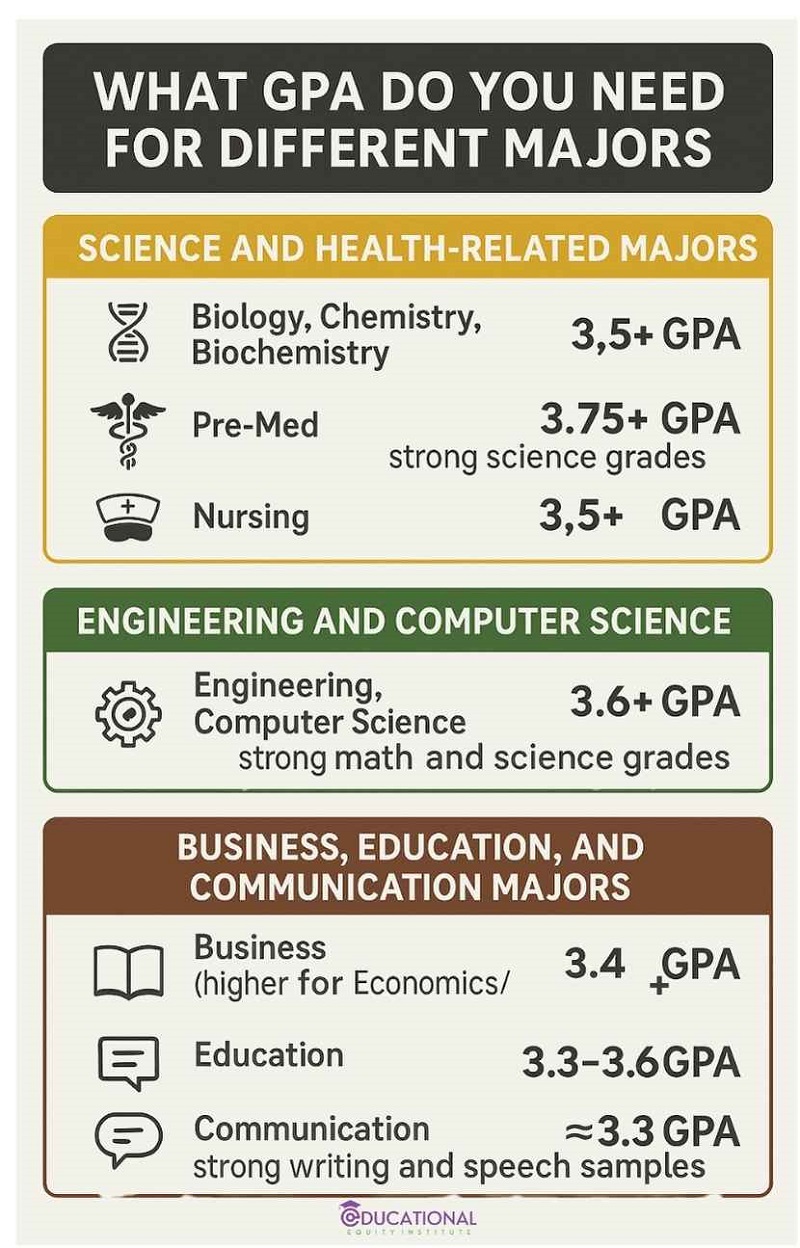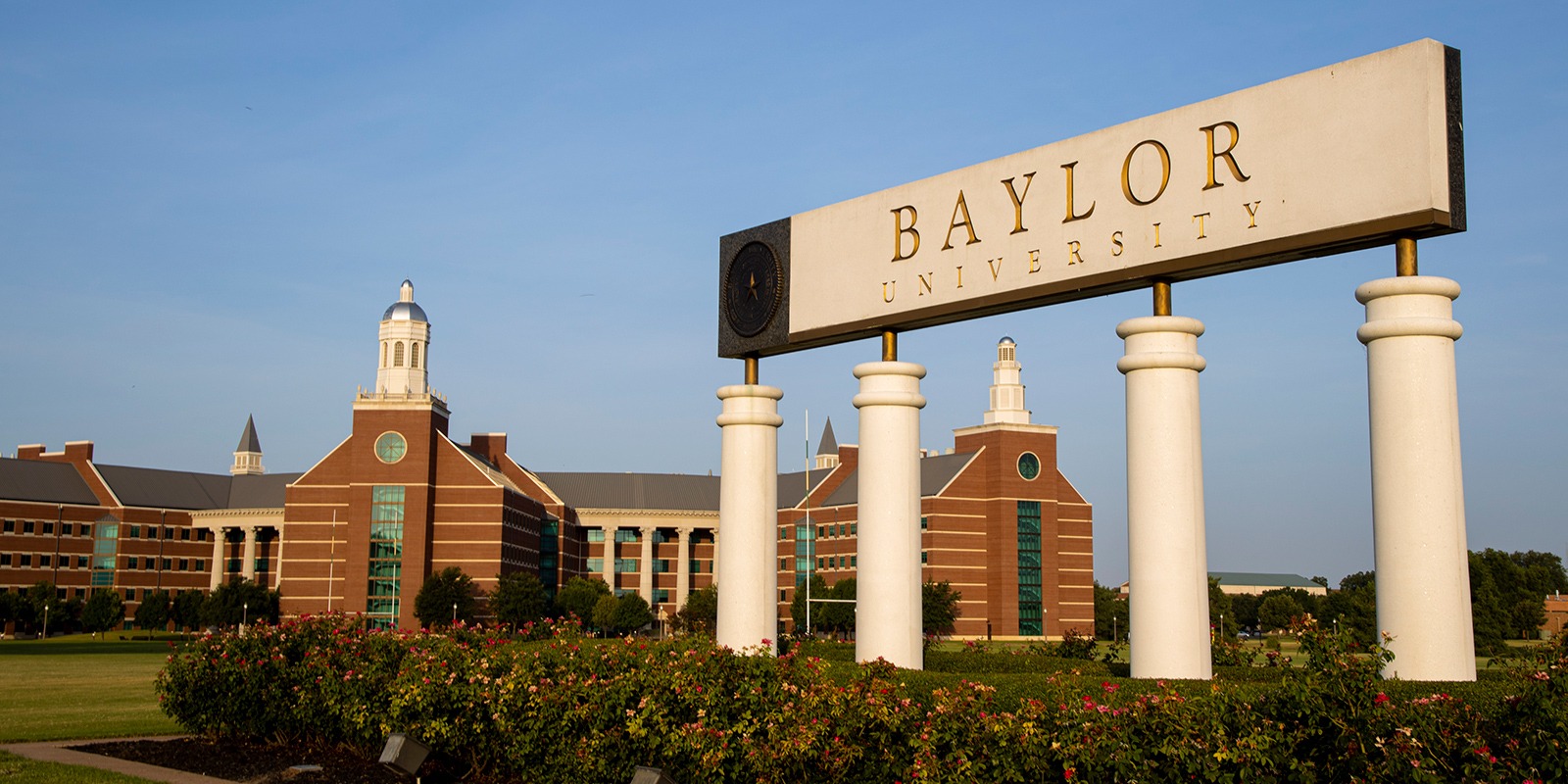Baylor accepts about half of the students who apply. That means GPA plays a serious role. Strong grades give you a clear advantage. Without them, the rest of the application has to work much harder.
Baylor does not use GPA as the only factor, but it remains one of the most important. The higher your GPA, the better your chances. Many students wonder what number they should aim for. That is exactly what this guide will explain.
GPA Insights Based on Baylor Acceptance Rate

A detailed breakdown helps clarify what GPA range gives you a real chance at Baylor.
| GPA Range | Admission Likelihood | Notes |
|---|---|---|
| 3.90 – 4.00 | Very High | Top-tier applicants. Often have honors/AP courses. Competitive across all majors. |
| 3.75 – 3.89 | High | Strong chance of admission. Still impressive across most departments. |
| 3.50 – 3.74 | Moderate to High | Meets general Baylor standards. Still competitive. Ideal for most programs. |
| 3.30 – 3.49 | Moderate | Might face more scrutiny. Strong extracurriculars or test scores help. |
| 3.10 – 3.29 | Low to Moderate | Possible with strong personal essays, recommendation letters, and test scores. |
| Below 3.10 | Low | Unlikely without exceptional achievements in other areas. Some majors will automatically disqualify. |
Baylor applies major-specific GPA requirements for certain programs. For example:
- Biology, Chemistry, Biochemistry: Minimum 3.5 GPA
- Pre-Veterinary Medicine: Minimum 3.0 GPA
- Computer Science and Engineering: Higher GPA recommended, often above 3.5
GPA alone will not cover the full picture. But it builds the foundation. Students who stay in the 3.75 and up range stand on the strongest ground. Those below 3.30 must shine in every other category.
How Baylor Evaluates GPA During Admissions
Baylor does not view GPA as a raw number in isolation. The admissions team reviews transcripts with attention to context. Each GPA is judged based on where the student earned it and how much effort went into achieving it.
Academic Rigor Comes First
Baylor pays close attention to the difficulty level of courses. A student with a 3.7 GPA in honors or AP classes holds stronger ground than a student with a 4.0 GPA in basic courses. Baylor values students who challenge themselves.
View this post on Instagram
A balanced schedule with advanced classes shows discipline, ambition, and time management.
Upward Trends Make a Difference
Applicants who show growth across semesters gain respect in the review. A weak freshman year followed by steady improvement can work in your favor. Baylor’s process rewards students who push past early struggles and show academic maturity.
Context Behind Numbers Matters
GPA does not tell the whole story. Baylor considers the school profile, available courses, grading scale, and any unique circumstances. A 3.6 GPA in a demanding high school can carry more weight than a 3.9 GPA in a low-pressure setting.
What GPA Do You Need for Different Majors
Some programs at Baylor have stricter GPA standards than others. Competitive departments want proof of strong academic foundation. GPA serves as a quick signal for who can handle the load.

Science and Health-Related Majors
Biology, Chemistry, Biochemistry, and similar majors expect at least a 3.5 GPA. These programs move fast and demand technical accuracy. A lower GPA signals a possible gap in preparation.
Pre-Med applicants often land above a 3.75 GPA. That group also needs high science grades in subjects like Physics and Chemistry. Baylor watches science GPA closely in those cases.
Nursing has its own threshold. Applicants typically need a GPA of at least 3.5 to be seen as competitive. Lower scores reduce chances sharply.
Engineering and Computer Science
Technology programs at Baylor expect rigor in math-heavy courses. Applicants in this group should have a GPA of 3.6 or higher, plus strong grades in calculus and science.
Business, Education, and Communication Majors
Business majors see a GPA of 3.4 as a baseline. High performance in economics or statistics courses strengthens that profile. Education majors usually fall between 3.3 and 3.6. Baylor expects future teachers to show mastery in core subjects.
Communication majors may pass with slightly lower GPA scores, but writing samples and speech records must show excellence.
How GPA Compares to Test Scores
Test scores play a secondary role, but they still carry weight. Baylor became test-optional, but many students still choose to send scores to boost their application.
SAT and ACT Ranges for Baylor
Accepted students typically fall within these ranges:
- SAT: 1210 to 1400
- ACT: 27 to 32
A student with a GPA of 3.5 and an ACT of 32 stands out. Baylor looks at the full picture. GPA shows long-term effort. Test scores show potential on a timed scale.
GPA Still Matters More
A strong GPA over four years holds more weight than one good test result. That is why Baylor emphasizes class performance over time. Students who skip test scores need to show high grades and strong coursework to stay competitive.
High Test Scores Can Help Offset a Lower GPA
A student with a 3.3 GPA and a 1400 SAT may still gain attention. Strong letters of recommendation and advanced coursework can push that applicant into the accepted group. Baylor wants to see what the student offers in every corner of the application.
Does Weighted GPA or Unweighted GPA Matter More?
Baylor reviews both versions of GPA, but each serves a different purpose. The unweighted GPA gives a clean view of performance on a standard 4.0 scale. The weighted GPA reflects how much academic challenge a student accepted through honors, AP, IB, or dual-enrollment courses.
Unweighted GPA Shows Core Strength
Unweighted GPA remains the baseline metric. It reveals how consistently a student performed regardless of course level. Baylor uses it to compare students from different high schools. A 3.7 unweighted GPA means the same across districts.
Weighted GPA Adds Value Through Difficulty
Weighted GPA helps Baylor understand effort and ambition. A student who maintains a 4.2 weighted GPA through honors and AP courses shows greater academic discipline than one who scores a 4.0 in regular courses. Baylor gives credit to students who push for harder material, especially in math, science, and English.
Balance Between the Two Matters
Students aiming for Baylor should focus on keeping their unweighted GPA above 3.5. At the same time, a weighted GPA above 4.0 signals strength in advanced coursework. Baylor values both numbers when they support each other.
Can You Get Into Baylor With a Low GPA?
GPA helps shape the first impression, but Baylor does not close the door to applicants with lower numbers. The school evaluates the full context. Strong performance in other areas can create an opening.
Personal Essays Carry Weight
A powerful essay shows maturity, reflection, and vision. Students with lower GPAs can use the personal statement to explain growth, setbacks, or passion for their field. Baylor looks for applicants who show direction and purpose.
Recommendation Letters Add Trust
Strong letters from teachers or counselors provide extra support. A teacher who explains a student’s drive, leadership, or growth gives the admissions team more to evaluate. Baylor takes those letters seriously when GPA falls below the usual range.
Activities, Leadership, and Talent Help Fill Gaps
Baylor values service, creativity, and leadership. A student who led a nonprofit, built an app, created art, or showed resilience through hardship brings something real to the table. Those stories can offset a GPA below 3.3.
How to Raise Your GPA Before Applying
For students who still have time in high school, GPA improvement creates a stronger Baylor application. Even small increases before senior year can shift how an application is reviewed.
Focus on Core Subjects
Math, English, science, and history carry the most weight. Grades in those subjects shape the academic narrative. Targeting improvements in those classes brings more results than boosting electives.
Retake Key Courses
If possible, retaking a course with a poor grade can raise the GPA. A higher replacement grade also shows Baylor that the student takes responsibility and aims for mastery.
Use Academic Support
Working with a tutor, teacher, or peer group can make a difference. Structured support reduces mistakes and improves consistency. GPA depends on routine effort. Small daily changes stack into visible progress.
Final Thoughts
Baylor expects strong grades, but GPA alone does not seal the outcome. Most admitted students fall above a 3.5, but there are exceptions. The key is knowing where you stand and what else you can offer. Each part of the application either supports or weakens the overall profile.
A high GPA makes everything easier. It opens doors to more programs, more scholarships, and more flexibility across departments. Students who fall short of the top range still have paths to admission if they bring a strong story, a focused resume, and the right support materials.
Know the numbers. Use your time wisely. Let each decision you make in school help move your GPA in the right direction. Baylor pays attention. Make sure you give them something worth seeing.
Read Next – How School Funding Inequities Impact Student Success

